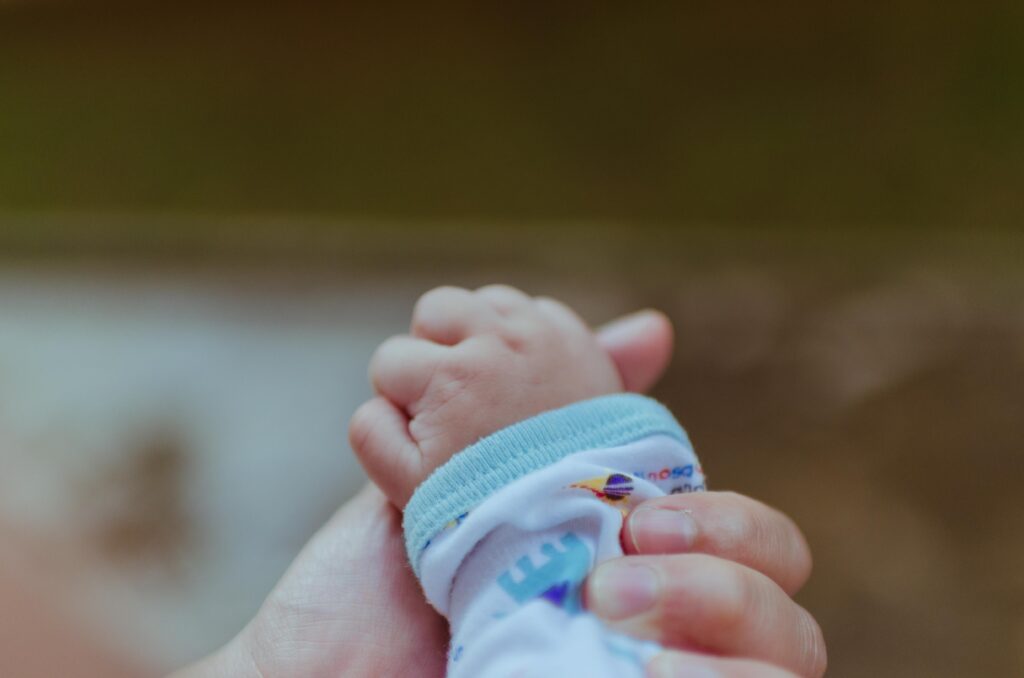Postpartum psychosis
Postpartum psychosis is a mental health illness that can affect a person not long after giving birth. It is normal to experience some temporary changes in mood after having a baby. But postpartum psychosis, also known as postnatal psychosis, is a serious mental health condition.

The illness affects around one in 500 mothers and people who gave birth and will usually start very soon after the baby is born. Speaking to The Telegraph, Victoria Pavitt told the readers how she experienced psychosis after the birth of her fourth child. Her first experience happened the day after he was born when Victoria found herself rooted to the spot at top of her stairs. Even though there were only 15 steps, Victoria says she ‘might as well have been staring down the Grand Canyon.’
“My head was filled with images of falling through the air and letting go of my son – and then seeing his tiny body, broken and bleeding, on the ground.”
Having to shuffle down each step on her bottom, Victoria was suffering from postpartum psychosis. While the condition is less common than post-natal depression, affecting one in 1,000 mothers, it is considered more severe.
What causes postpartum psychosis?
The illness is thought to be triggered by the sudden drop in hormones mothers and people who gave birth experience after giving birth. The symptoms can appear with no warning and can put the mother in danger of harming herself or her child.
Victoria hadn’t suffered from any problems like this before and hadn’t experienced symptoms after the births of her previous three children. This is the case for over 50% of mothers affected.
Symptoms of postpartum psychosis
- hallucinations (seeing, hearing or feeling something that isn’t there)
- delusions (holding onto a belief that is unlikely to be true)
- suspicion
- lack of inhibitions
- intense restlessness
- harmful thoughts
- loss of appetite
- disruptive behaviour
- manic behaviour
- insomnia
- intrusive thoughts
- rapidly changing moods
- extreme confusion
Find out more about the symptoms of psychosis.
As time went on, Victoria’s condition worsened as she became overwhelmed by symptoms such as intrusive and violent thoughts.
“The terrors got worse at night. I was so worried he’d die that I slept on the floor next to him to check he did not stop breathing. But when I closed my eyes I saw his gravestone.”
Fearing that her son would be taken away from her, Victoria hid her state of mind during postnatal check-ups. Soon her hair started falling out, her weight plummeted and she began to suffer from panic attacks. At this point, she had no choice but to seek help.
How to get help
As postpartum psychosis is considered to be a ‘psychiatric emergency’ by the NHS, it should be treated urgently. If you, or someone else you know, may have developed symptoms, please see a medical professional that same day.
Victoria went to see her GP and was prescribed a mixture of medication, including sleeping tablets to help her sleep and antidepressants to rebalance the chemicals in her brain. Trial and error led to the right combination of medication, allowing Victoria to regain control.
After 18 months, Victoria was able to come off medication. Speaking about her illness, she says it is essential that it be seen as an issue of its own rather than being placed under the umbrella of post-natal depression.
“Now we can talk about it, no new mother should ever have to feel alone with this again.”
If you have been treated medically for postpartum psychosis like Victoria and are looking to talk to a counsellor about your experience, you can find a qualified counsellor on the Counselling Directory.
This article was updated on March 29th, 2023

Find a therapist dealing with Psychosis
All therapists are verified professionals


